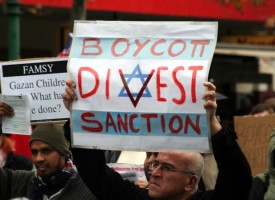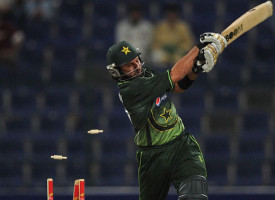Pakistan and Sri Lanka are two important South Asian nation states, even more so because of their unique geostrategic locations. Pakistan is the Indian Ocean’s transit route to Afghanistan and Central Asia and eventually Europe, whereas Sri Lanka lies near major sea lanes in the Indian Ocean Region (IOR). Thus, the tiny island state assumed greater importance in the context of maritime trade and combating privacy. Little wonder why China is investing in a new port near the capital Colombo and further desires establishing a Free Trade Agreement with it as part of its ambitious ‘One Belt One Road’ geo-economic project.
Sri Lanka, formerly known as Ceylon, established bilateral diplomatic-cum-trade contacts in 1948. But more than its soft power contribution, Pakistan is revered by the island state’s government and citizens for its military and security contribution in defeating the Liberation Tigers of Tamil Eelam (LTTE), popularly known as “Tamil Tigers” who were sponsored by India. The Sri Lankan Armed Forces hold their Pakistani counterparts in great esteem, often inviting army chiefs to address officers undergoing training in their military institutions. Naval ties are assuming increased significance among mutual defence ties because for Sri Lanka, sea power holds primary importance over land and aerial warfare.
Pakistan was Sri Lanka’s second largest trade partner and the first country with which the latter signed a Free Trade Agreement (2005). Another first in bilateral relations between both SAARC member states is that Pakistan will provide civil nuclear technology to Sri Lanka, taking the partnership to a whole new strategic level. Pakistani Prime Minister Muhammad Nawaz Sharif was recently on a 3-day visit to Sri Lanka with a delegation comprising Commerce Minister Khurram Dastagir Khan, Defence Production Minister Lt Gen (Retd) Rana Tanveer Hussain, Special Assistant to Prime Minister on Foreign Affairs Tariq Fatemi, Adviser to Prime Minister on National Security and Foreign Affairs Sartaj Aziz and National Security Adviser Lt Gen (Retd) Nasser Khan Janjua. Thus we can easily infer that the scope of the bilateral talks will be large, covering prospects of cooperation and collaboration in trade investments, economic partnerships, security and defence and other strategic affairs.
One of the most notable outcome of the Prime Minister’s recent visit to Sri Lanka is that Sri Lanka has signed an agreement to purchase 8 (eight) JF-17 Thunder fighter jets jointly manufactured by Pakistan and China. Known for its agility and precision-strike capabilities, the Thunder was rumored to be on the island state’s cards for a while with some news forums publishing stories suggesting that the Indian military establishment was trying to divert Sri Lankan attention to their own indigenous aircraft as procurement options.
Then there are also the strong ties established through sports diplomacy via cricket. The 2009 attack on a Sri Lankan cricket team in Lahore sent shockwaves across the world but Sri Lankan government and its people stood firmly with their Pakistani friends. The statements by Sri Lankan cricket officials at the time were encouraging.
Following are some of the highlights of Pak-Sri Lankan ties since the dawn of the second millennium:
2004
- In October, Sri Lankan government had removed import duty on rice exported by Pakistani traders. The move had given a larger market share for the Pakistanis.
- On December 26, a massive earthquake measuring 9.2 on the Richter scale struck the IOR generating devastating tsunamis which killed hundreds and thousands of people in Malaysia, Bangladesh, Maldives, Sri Lanka, Kenya, Somalia and Tanzania. Pakistan Navy constituted an Expeditionary Force comprising helicopters, a Field Hospital, a Marines Platoon and a Special Service Group Navy (SSG-N) platoon onboard PNS Moawin and PNS Khaibar. They provided humanitarian assistance and relief to the effected people of Sri Lanka and Indonesia.
2005
- Pakistan Navy’s newly-established Field Hospital at Ahangama commenced functioning by January 12, 2005. The Sri Lankan government requested for extension and the hospital continued functioning till January 16. During this critical period, the hospital treated about 8,500 patients and carried out 92 surgical operations.
- In June, Pakistan and Sri Lanka signed a historic Free Trade Agreement through which the former would gain duty free access on 102 products in the Sri Lankan market whereas the latter would be able to enjoy duty free market access on 206 products in the Pakistani market including tea, rubber and coconut.
2006
Pakistan’s increased assistance to Sri Lankan forces against LTTE was infuriating the Indian establishment.
2010
Sri Lanka evinced interest in purchasing Pakistan-manufactured Al-Khalid Main Battle Tanks, light weapons and ammunition. It was also the first time the Sri Lankans expressed their interest in purchasing JF-17 Thunder jets.
2011
- In January, then Pakistani Chief of Army Staff (COAS) General Ashfaq Parvez Kayani delivered a keynote address at the Defence Services Command and Staff College (DSCSC) at Sapugaskanda and reiterated that Pakistan always stood with Sri Lanka in its hour of need.
- Sri Lanka’s export to Pakistan increased from $26 million during January to May in 2010 to $34 million in 2011, registering a 30.8% growth.
- In June, Pakistani High Commissioner to Colombo Seema Ilahi Baloch thanked Sri Lanka for its political and logistical help against India during the 1971 War.
- Also in June, Sri Lankan High Commissioner to Islamabad Air Chief Marshal (Retd) Jayalath Weerakkody said that Sri Lanka was keen to expand trade ties with Pakistan as its products were of high quality.
2012
- In May, Pakistan Navy Ship Azmat was on a goodwill visit to Sri Lanka.
- In July, India was alarmed by Pakistan’s reported establishment of a nuclear power plant in Sampur town of Trincomalee District, Sri Lanka.
- In August, Pakistani authorities arrested Malik Ishaq, now-dead chief of the Lashkar-e-Jhangvi terrorist group who had reportedly masterminded the 2009 attack on Sri Lanka’s cricket team in Lahore.
2013
- In April, the Fifth Technical Level Meeting on Pakistan-Sri Lanka Free Trade Agreement (PSFTA) was held at Islamabad.
- In June, then COAS Pakistan Army General Kayani had visited Sri Lanka to meet his Sri Lankan counterpart General Jagath Jayasuriya. The latter sought more training opportunities for Sri Lankan officers in Pakistan, in addition to the training programs taking place back then.
- In July, Sri Lanka was considering a nuclear pact with Pakistan after India voted against it at the UN earlier the same year.
- In August, Minister of State for Water and Power Abid Sher Ali met his Sri Lankan counterpart Pavithradevi Wanniarachchi and praised Sri Lanka as the power and energy sector management leader in the IOR.
2015
- In April, Pakistan and Sri Lanka agreed to triple their trade to $1 billion.
- In November, Pakistan’s Commerce Minister Khurram Dastagir Khan visited President Sirisena and offered Sri Lanka access to markets in South, Central and West Asia through Pakistan.
With China rigorously working on the China-Pak Economic Corridor (CPEC) in Pakistan and pushing for increased assertiveness in the IOR, Pakistan and Sri Lanka stand to benefit as strong Chinese allies as guarantors of peace in the region’s waters, besides ensuring that no single country of strategic bloc establishes its hegemonic monopoly over maritime trade.
This was elaborated by Prime Minister Sharif during his address on January 5 at the Lakshaman Kadirgamar Institute of International Relations and Strategic Studies:
Sri Lanka enjoys a key position in the Indian Ocean and has much to offer in terms of maritime cooperation and maintenance of peace and security in the Indian Ocean region. Pakistan desires enhanced maritime cooperation with Sri Lanka and seeks increased engagement between the armed forces of our two countries. Pakistan will continue to offer training facilities to the Sri Lankan Armed Forces, police and other institutions.
The Beijing factor will go a long way in further cementing Islamabad-Colombo ties for peace and prosperity in South Asia.









No comments!
There are no comments yet, but you can be first to comment this article.